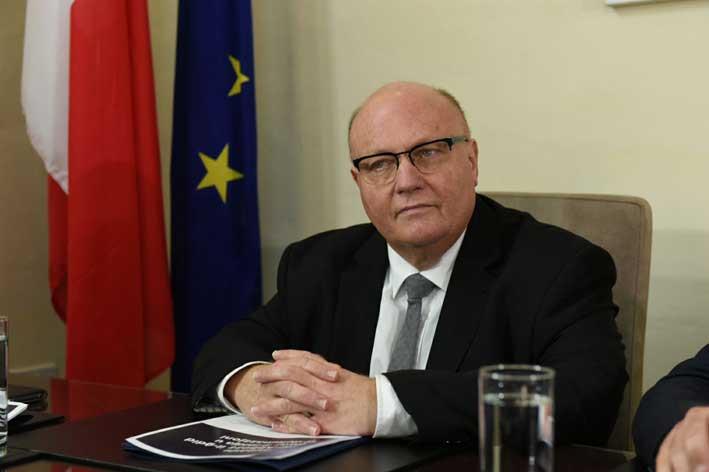Chief Justice Silvio Camilleri told the European Parliament rule of law delegation in December that the police do not need “reasonable suspicion” to start a criminal investigation. Investigations can be started by the Police with simple information of a crime brought to their attention, in any form.
The delegation visited Malta on 30 November and 1 December.
According to the mission report, which was published on Thursday evening, the Chief Justice also told the MEPs that the Attorney General can request a police investigation.
But AG Peter Grech told the mission that, to issue such an investigation order, one must be in possession of concrete evidence in order to stand before the courts.
When asked by Members if several media reports about serious suspicions of money laundering by Politically Exposed Persons, including one minister and the PM’s chief of staff, were not enough to request such an investigation order, he answered “No.”
Need to separate AG’s roles - Chief Justice
Chief Justice Silvio Camilleri spoke about the importance of separating the roles of the AG, as legal counsellor of the government and as public prosecutor.
He said that, according to the constitutional system, the AG was able, over the years, to distinguish between roles but admitted that this combination of functions may no longer be suitable;
Following questions on the low number of investigations and prosecutions concerning financial crime and corruption, the Chief Justice acknowledged that a culture of impunity is fostered when the rule of law is weakened and law enforcement is perceived as weak: then the criminality rises.
He made reference to Moneyval evaluations criticizing Malta for its low level of prosecution of money laundering cases.

AG does not have power to start criminal investigation – Peter Grech
When asked why he did not press charges against the persons exposed in the Panama Papers, Attorney General Peter Grech told the EP group that, according to the Maltese legal system, the AG does not have the power to start a criminal investigation. It is in his competence to start, undertake and/or discontinue criminal proceedings, but only when a person has already been charged.
According to him, it is the sole competence of the Police to initiate an investigation which can lead to criminal charges.
When the Police do not press charges, then there is the possibility for the interested person to challenge the Police decision not to bring a case before the courts and this is submitted to a magistrate decision. The Court of Magistrates then decides on this claim and can order to initiate proceedings. In case there is a magisterial inquiry initiated, the inquiry is sent to the Attorney General and to the Police and then there is a legal obligation to initiate proceedings.
“However, Members of the Delegation heard from other authorities (including the Chief Justice) that, according to Art. 4 of the Maltese Prevention of Money Laundering Act, the AG has the right to issue an investigation order, which would request the Police to start a criminal investigation,” the report states.
Asked specifically on his competences to initiate proceedings based on the Act, the AG noted that he needs a reasonable suspicion in a money laundering case to ask the Court to issue an investigation order.
The same powers are vested in FIAU also and they can in their report conclude that there is a reasonable suspicion of money laundering.
Asked about the FIAU reports, Grech noted that all five are now subject to magisterial inquiries. He reiterated that, in order to commence the prosecution, the standard is higher and it is needed a certain level of proof, which is also a safeguard.